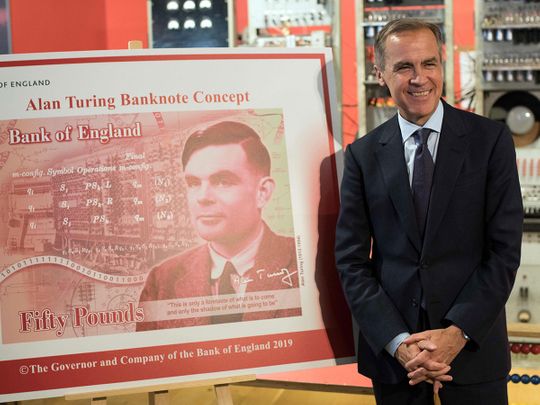
Dubai: The story of Alan Turing and his tragic death was portrayed in the 2014 film ‘The Imitation Game’, which went on to win eight Oscar nominations.
British actor Benedict Cumberbatch, who played Turing, was also nominated for Best Actor.
Although the award eventually went to Eddie Redmayne, who portrayed another British icon, Stephen Hawking, in ‘The Theory of Everything’, ‘The Imitation Game’ went home with one Oscar for Best Adapted Screenplay, for Graham Moore, who wrote the film based on Andrew Hodges’ biography, Alan Turing: The Enigma, published in 1983.
The film also received the Turing family’s stamp of approval. His niece Inagh Payne told the BBC Radio Machester that it “really did honour my uncle”.
Critically, ‘The Imitation Game’ was widely lauded. It currently holds an 89 per cent ‘Fresh’ rating on reviews aggregate site rottentomatoes.com. Made on a budget of $14 million, it went on to make $233.5 million at the global box office.
Cumberbatch seems to have been one of the earlier advocates to have Turing’s face on banknotes. While promoting the film in 2014, he told the UK’s Telegraph that he thought the Turing was “up there with Charles Darwin”.
“He should be on banknotes,” Cumberbatch said. “But more important is the idea that the man at the centre of it, who was persecuted for being different, still stands sadly for a lot of persecution that goes on around the world today. That’s what terrifies me – that it’s as prevalent now, and that this is how we treated one of our war heroes, and a great scientist.”












